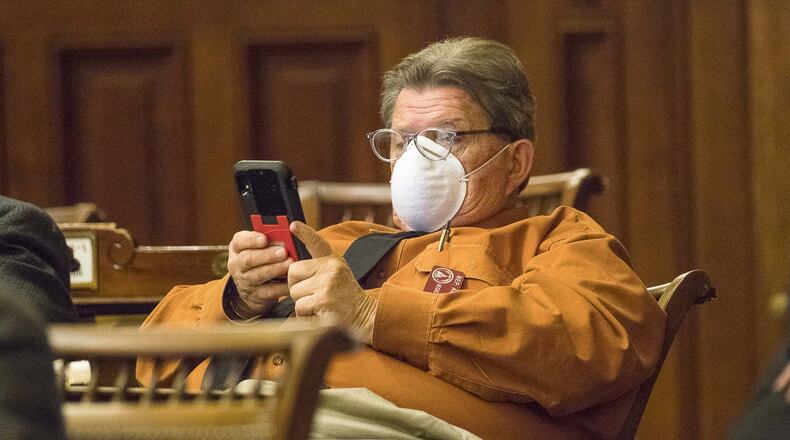With less than seven weeks until the Georgia General Assembly must approve a 2021 state budget, very little is known about what the reopened legislative session will look like when lawmakers return to the Capitol to set the state’s spending priorities.
And House Speaker David Ralston and Lt. Gov. Geoff Duncan have yet to reach an agreement on when to resume the session that was suspended in March to slow the spread of the novel coronavirus.
Ralston has told House members the session will resume June 11. Duncan, after initially calling for lawmakers to return Thursday, now says the session should resume June 15 after all lawmakers and staff have been tested for COVID-19, the disease caused by the coronavirus. Some committees started holding virtual meetings last week.
Though no final decisions have been made, groups in each chamber are working separately to develop guidelines for how business will be conducted for the remaining 11 legislative workdays of the 40-day session.
A legislative session is an environment that is ripe for passing infectious diseases.
Lawmakers, lobbyists and guests typically shake hands and exchange hugs dozens of times a day. And 56 state senators and 180 representatives are in close quarters in their respective chambers each day, along with dozens of staffers and journalists.
“As you can imagine, the nature of the legislative session which, by design, is meant to bring together hundreds of people from across the state under one roof to craft legislation and debate policy poses some unique challenges with regard to preventing the spread of the virus,” Ralston said in a memo to House members Tuesday.
Senate Majority Leader Mike Dugan, a Carrollton Republican, said a panel of senators is considering several details for returning to the chamber, including having only a handful of lawmakers in the chamber while the other senators watch a livestream of proceedings from their offices in the Capitol or across the street in the legislative office building. Senators would also wear masks on the floor of the chamber.
“This is the first time we know of in history where we would be wearing (masks) on the floor,” Dugan said.
Most interns and aides would not be allowed in the chamber, and those considered to be at high risk would be encouraged to continue working from home. Journalists would sit in the fourth-floor gallery above the Senate.
The usual parade of “special guests” and presentations that typically take up at least an hour of session each day would be nixed.
Floor debate could vastly change as well.
In a proposed scenario, a bill sponsor would come into the chamber to present his or her legislation. Questions would be sent to either Dugan or Senate Minority Leader Steve Henson, who would make the inquiry on their colleagues' behalf. Groups of senators would be called in to vote — coming in through one door of the chamber, going to their desk to vote and leaving on the other side of room.
Many of the chamber door keepers are at a higher risk of severe illness from the coronavirus because of their age. So they will likely be replaced by younger Senate staffers.
Dugan said lawmakers are hoping to install additional television screens so the public can watch floor debate and committee meetings while keeping at a social distance in hallways and other parts of the buildings.
Members of a House committee on Tuesday said in a report that it has not yet begun to nail down details of a return to the chamber, but it issued some potential guidelines for staff members who are expected to resume working from the Capitol on June 1.
Recommendations include limiting the number of entrances to the Capitol and legislative office building, installing temperature scanners, turning away those with body temperatures higher than 100.4 degrees, and encouraging, but not requiring, those entering the building to wear masks.
Dugan stressed that no final decisions have been made about session logistics.
“I assume since we’re in uncharted territories, we’ll have to make some modifications,” Dugan said. “But it’s nothing we can’t overcome.”
About the Author
Keep Reading
The Latest
Featured


